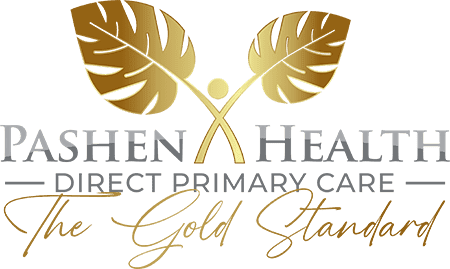Breast Cancer Risk Factors: Understanding Your Personal Risk Profile and Screening Needs
Breast cancer is a significant health concern for women worldwide, with millions facing this diagnosis each year. At Pashen Health in Safety Harbor, Florida, we prioritize your health and wellness, providing comprehensive, personalized care to help you understand your breast cancer risk factors and screening needs. With our concierge direct primary care services, including the recent addition of pap smears for our DPC patients, we strive to offer our community the highest standard of care.
Understanding Breast Cancer
Breast cancer originates in the cells of the breast, primarily in the ducts and lobules. It can spread to other body parts if not detected and treated early. The key to managing breast cancer effectively is understanding your risk factors, adhering to recommended screening protocols, and making informed lifestyle choices.
Risk Factors for Breast Cancer
Breast cancer risk factors can be categorized into modifiable and non-modifiable factors. Understanding both types can help you and your healthcare provider develop a personalized plan for screening and prevention.
Non-Modifiable Risk Factors
- Age: The risk of breast cancer increases with age. Most cases are diagnosed in women over the age of 50.
- Gender: Women are at a significantly higher risk of developing breast cancer than men.
- Family History: Having a close relative (mother, sister, or daughter) with breast cancer increases your risk. Genetic mutations such as BRCA1 and BRCA2 also contribute to higher risk.
- Personal History of Breast Cancer: If you have had breast cancer in one breast, the risk of developing cancer in the other breast or another part of the same breast is higher.
- Race and Ethnicity: White women are slightly more likely to develop breast cancer than women of other races. However, African American women are more likely to die from the disease.
- Menstrual History: Early menstruation (before age 12) or late menopause (after age 55) increases breast cancer risk due to longer exposure to estrogen.
- Radiation Exposure: If you received radiation therapy to the chest for another cancer, particularly during childhood or young adulthood, your risk is higher.
Modifiable Risk Factors
- Hormone Replacement Therapy (HRT): Using HRT after menopause, especially combined estrogen-progesterone therapy, can increase the risk of breast cancer.
- Reproductive History: Having your first child after age 30, not breastfeeding, and not having a full-term pregnancy can increase your risk.
- Lifestyle Factors:
- Alcohol Consumption: Regular alcohol intake increases breast cancer risk.
- Obesity: Being overweight, especially after menopause, is linked to a higher risk.
- Physical Inactivity: Regular exercise reduces breast cancer risk.
- Diet: A diet high in saturated fats and low in fruits and vegetables may increase risk.
- Smoking: Long-term smoking is associated with an increased risk of breast cancer, particularly in women who start smoking before their first pregnancy.
Understanding Your Personal Risk Profile
At Pashen Health, we believe in empowering you with the knowledge to understand your personal risk profile. This involves a thorough evaluation of both your non-modifiable and modifiable risk factors. During your consultation, our healthcare providers will take a detailed personal and family medical history, assess your lifestyle habits, and discuss any previous exposures to risk factors such as hormone replacement therapy or radiation.
Genetic Testing and Counseling
Genetic testing can be a valuable tool for those with a significant family history of breast cancer or related cancers. Testing for BRCA1, BRCA2, and other genetic mutations can provide insight into your risk and guide your screening and prevention strategies. Our team at Pashen Health offers genetic counseling to help you understand the implications of test results and make informed decisions about your health.
Breast Cancer Screening Guidelines
Early detection of breast cancer through regular screening can significantly improve outcomes. Screening guidelines can vary based on individual risk factors, so it’s important to work with your healthcare provider to develop a screening plan tailored to you.
Mammograms
A mammogram is an X-ray of the breast and is the most effective tool for early detection of breast cancer. Here are the general guidelines:
Women aged 40-49: Discuss with your healthcare provider when to start and how often to have a mammogram.
Women aged 50-74: It is recommended to have a mammogram every two years, but your provider might suggest annual screenings based on your risk profile.
Women aged 75 and older: Screening decisions should be based on individual health status and personal preferences.
Clinical Breast Exams and Self-Exams
Clinical Breast Exams: These are performed by a healthcare provider and can help detect lumps or other changes. It’s recommended every 1-3 years for women in their 20s and 30s and annually for women over 40.
Breast Self-Exams: While not a substitute for mammograms, regular self-exams can help you become familiar with your breasts and notice any changes. Report any new lumps, changes in shape or size, or other unusual findings to your healthcare provider promptly.
Advanced Screening Options
For women at high risk, additional screening methods might be recommended, such as:
Magnetic Resonance Imaging (MRI): An MRI uses magnets and radio waves to create detailed breast images and is often used in conjunction with mammograms for high-risk women.
Ultrasound: This can evaluate abnormalities found during a mammogram or physical exam.
Reducing Your Breast Cancer Risk
While some risk factors cannot be changed, adopting a healthy lifestyle can help reduce your breast cancer risk. Here are some actionable steps you can take:
Maintain a Healthy Weight
Aim for a balanced diet rich in fruits, vegetables, whole grains, and lean proteins.
Limit intake of saturated fats and sugars.
Consider portion control and mindful eating practices.
Stay Physically Active
Engage in at least 150 minutes of moderate aerobic or 75 minutes of vigorous activity each week.
Include strength training exercises at least twice a week.
Limit Alcohol Consumption
Aim to limit alcohol intake to no more than one drink per day for women.
Avoid Smoking
If you smoke, seek support to quit. Pashen Health can offer resources to help you with smoking cessation.
Breastfeed if Possible
Breastfeeding for several months can slightly reduce breast cancer risk, particularly for premenopausal women.
Consider Your Reproductive Choices
Discuss the timing of pregnancies and the potential benefits of breastfeeding with your healthcare provider.
The Role of Hormone Replacement Therapy
Hormone replacement therapy (HRT) can provide relief from menopausal symptoms, but it’s important to discuss the potential risks and benefits with your healthcare provider. If you are considering HRT, thoroughly evaluating your personal risk factors will help guide the safest approach.
The Importance of Regular Check-Ups
Regular check-ups with your healthcare provider are crucial for monitoring your health and updating your screening plan. At Pashen Health, we offer comprehensive exams, including breast exams and pap smears, to help you stay on top of your health. Our concierge direct primary care model ensures personalized attention and timely care.
Conclusion
Understanding your personal risk factors for breast cancer and adhering to recommended screening guidelines are vital steps in proactive health management. At Pashen Health, we are committed to providing compassionate, comprehensive care to help you navigate your breast cancer risk and screening needs. By partnering with us, you can feel confident in your health journey, knowing you have a dedicated team supporting you every step.
We invite you to schedule a consultation with us to discuss your breast cancer risk profile, screening options, and any other health concerns. We can create a personalized plan to ensure your well-being and peace of mind.
Don’t wait to take control of your health. Contact Pashen Health today to schedule your comprehensive breast health evaluation and screening. Our team is here to support you with the highest quality of care and personalized attention.
Pashen Health in Safety Harbor, Florida, is dedicated to providing top-notch concierge direct primary care services, including breast cancer screening and pap smears. We are here to help you understand your risk factors and develop a personalized plan for your health and wellness. Your journey to better health starts with understanding your risks and taking proactive steps towards early detection and prevention. Let us be your partners in this important aspect of your healthcare journey.


